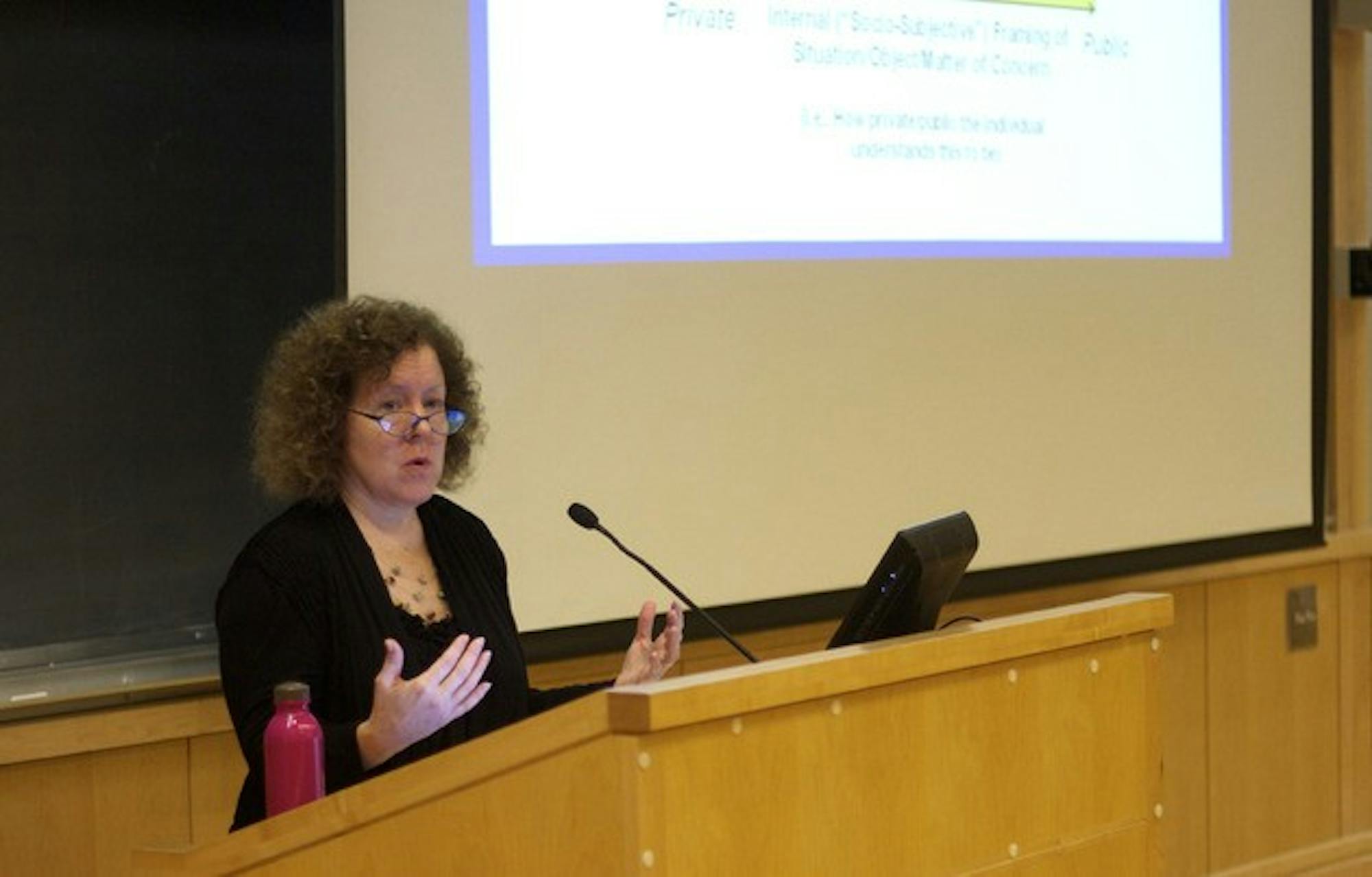Nippert-Eng whose 2010 book "Islands of Privacy: Selective Concealment and Disclosure in Everyday Life" explores how people try to protect their privacy said that different people have different perceptions of privacy and therefore react differently to privacy violations.
Her research among college-educated individuals has shown that people define privacy in three primary ways: the ability to control access to personal information, physical isolation and the freedom of self-determination, Nippert-Eng said.
"Privacy was something that was hugely important to people," she said of the research findings. "They really wanted to talk about it and to talk about it in ways that we don't often get to hear about."
People feel that their privacy has been violated when they cannot control access to personal information in the ways they would like, according to Nippert-Eng. A person's perceived level of violation depends on how private he or she feels the revealed information is.
Although individuals fear privacy violations, they rarely take precautions to keep these breaches from happening, Nippert-Eng said.
"Not only are not all privacy fears serious, but even the serious ones don't lead us to change our behaviors," she said.
Americans particularly interested in privacy issues compared to residents of other countries due to the tension between membership in social groups and respect for individual freedom, according to Nippert-Eng. People often focus more on friends and family in relation to personal privacy than on what information is public or visible to government officials or corporations.
"It's your own big brother that you're much more worried about when it comes to privacy than George Orwell's Big Brother," Nippert-Eng said.
Dartmouth sociology professor Denise Anthony, who is the director of the Institute for Security, Technology and Society, helped to organize the lecture and said she appreciated Nippert-Eng's sociological perspective on privacy issues.
"A lot of the research around privacy is done by legal scholars looking at how privacy has been legally protected and people who are in technology fields studying technological aspects of privacy," Anthony said. "We wanted to get a social science perspective."
Nancy Carter, a Hanover resident who attended the lecture, said she was not surprised by anything Nippert-Eng said.
"I have three kids between the ages of 22 and 29," Carter said. "I am constantly aware of how different a view they and I have about how you use public information."
Carter said she enjoyed the event because Nippert-Eng approached a complicated issue in a manner understandable to non-sociologists.
Nippert-Eng studied political science at the State University of New York College at Cortland and received a PhD in sociology from Stony Brook University.
Her lecture, "Privacy: How We Do It and When It Matters Most," was co-hosted by the ISTS and the sociology department.




